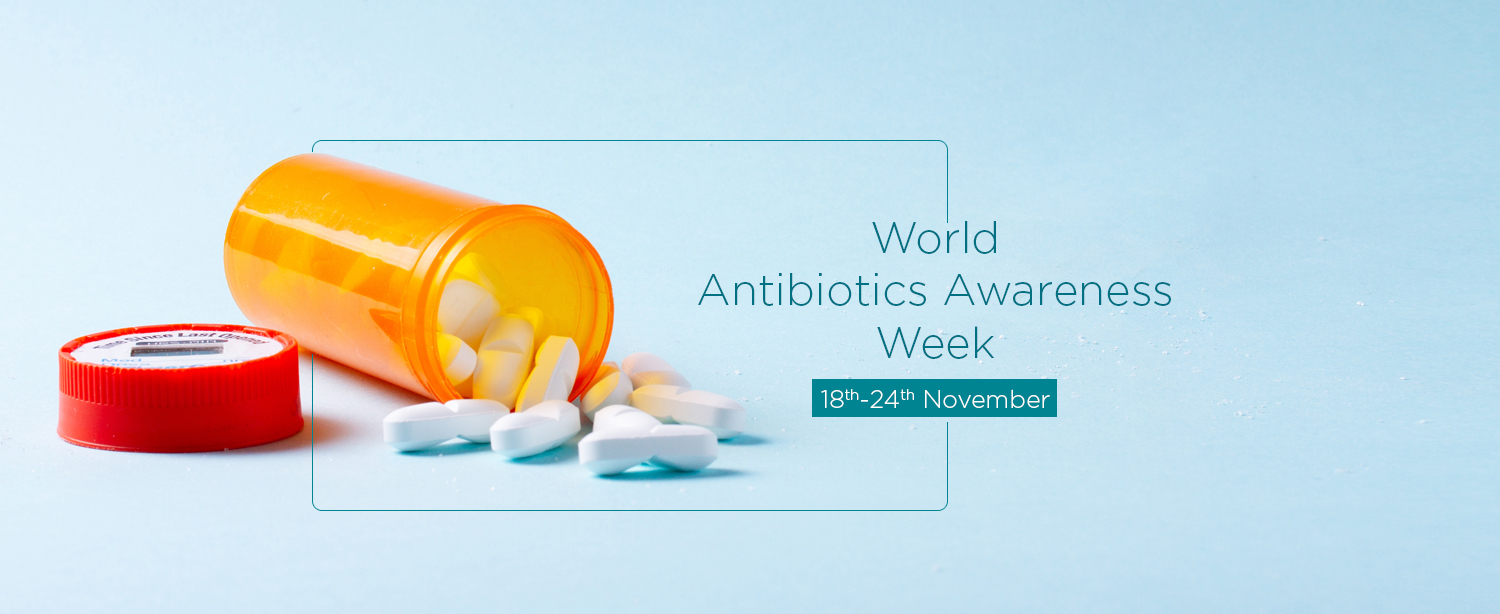According to the State of the World’s Antibiotics 2021 study antibiotic use in India has increased dramatically, with a 30 percent increase in per capita use over the last decade, raising worries about widespread and growing antibiotic resistance.
Spread awareness, stop resistance
Every year, between November 18 and 24 the world observes World Antimicrobial Awareness Week (WAAW). It helps raise awareness about global antimicrobial resistance (AMR) and encourages best practises among the general public, health workers, farmers, animal health professionals, and policymakers to prevent the spread of drug-resistant infections.
What is antibiotic resistance?
Antibiotics are medicines used to kill bacteria. Over time, certain groups of these germs may adapt to these medicines and change in such a way that antibiotics can′t kill them. This is called antibiotic resistance. Bacteria are very small organisms and some of them are harmless and may be helpful. But some of these germs can be harmful, they multiply inside your body, and can cause disease. Before antibiotics were introduced, people often got very sick from bacterial infections. With these medicines, it is now easy to treat many infections and save lives too.
Antibiotic resistance is increasing at an alarming rate across the world. New resistance mechanisms are arising and spreading throughout the world, posing a danger to our ability to treat common infectious diseases. As antibiotics become less efficient, an increasing variety of infections — including pneumonia, tuberculosis, blood poisoning, gonorrhoea, and foodborne diseases – are becoming more difficult, if not impossible, to cure. Antibiotic resistance is jeopardising contemporary medicine’s gains. Without appropriate antibiotics for prophylaxis and treatment, organ transplantation, chemotherapy, and procedures such as caesarean sections may become substantially more risky.
How to Prevent Antibiotic Resistance?
Antibiotics operate by combating bacterial illnesses. They have the ability to kill germs or make it more difficult for bacteria to develop and multiply. Bacteria can adapt and create new structures that make them resistant to antibiotics when we abuse or overuse them. Viral infections, such as the common cold, flu, most sore throats, and ear infections, are the most prevalent causes of illness that are resistant to medications. These infections do not need antibiotics.
The process of antibiotic resistance is accelerated by the misuse and overuse of antibiotics, as well as poor infection prevention and control measures. It is important to use antibiotics responsibly and take steps at all levels of society to reduce the impact and limit the spread of resistance. Here are a few precautions to take:
- Use antibiotics only when prescribed by a certified health professional.
- Do not use antibiotics for viral infections.
- Never demand antibiotics if your doctor says you don’t need them.
- Always follow your doctor’s advice when using antibiotics.
- Never share or use leftover antibiotics.
- Prepare and store food hygienically, and choose foods that have been produced without the use of antibiotics for growth promotion or disease prevention in healthy animals.
Key facts
Antibiotic resistance is one of the biggest challenges to global health, food security, and development today. Anyone, of any age, in any country, can be affected. Antibiotic resistance occurs naturally, but human and animal overuse of antibiotics accelerates the process. Antimicrobial consumption in animals is nearly three times that of humans and is a primary driver of the scale-up in animal protein production. As antibiotics used to treat TB, pneumonia, gonorrhoea, and salmonellosis become less effective, these infections are becoming more difficult to cure.
Health Precautions
No one can completely avoid the risk of resistant infections, however people with a low immunity, or those suffering from existing health conditions are at a greater risk. We will lose the ability to treat illnesses and handle public health problems if antibiotics lose their effectiveness. Here are a few ways to help prevent the spread of all bacterial infections:
- Always wash your hands with soap and water.
- Don’t share food or beverages with others.
- Practice safe sex.
- Use tissues to cover your mouth when coughing or sneezing.
- Don’t touch open wounds.
- Stay away from sick people.
- Don’t share personal items such as razors, towels, or brushes.
Use antibiotics responsibly for your and everyone’s safety.


